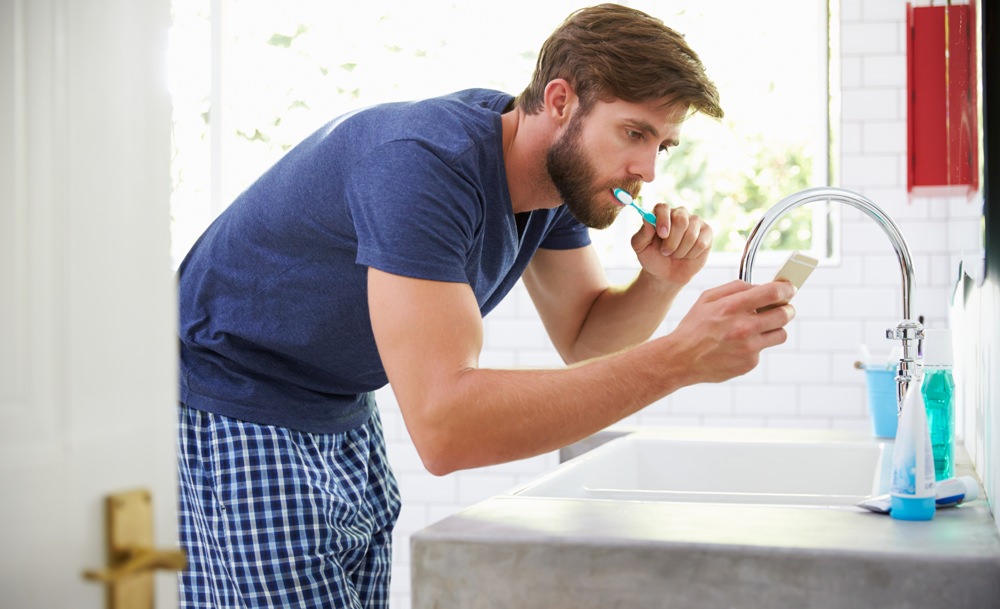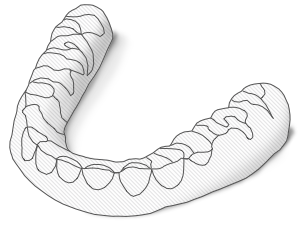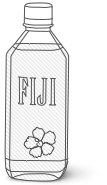Is This the Perfect
Whitening Toothpaste?
Real, noticeable results and safe enough for the most sensitive teeth.

You probably know that you need to brush daily for at least two minutes. And you've likely read somewhere about the myriad health benefits of flossing. But there are common mistakes you're likely making that can have pretty serious consequences to your overall oral hygiene. And what's worse, they're not all that obvious. We consulted with top dental authorities to see what they consider to be the mistakes everyone should be correcting in order to have healthy teeth and gums.
We never seem to give our full attention to our brushing, do we? At the end of the day, you're tired and ready to go bed. In the morning, we're rushed and so it's tempting to quickly brush your teeth while you're in the shower or scrolling through social media. Dr. Alison Newgard, DDS, an assistant professor of clinical dentistry at Columbia University knows it's tempting, "but I prefer patients to be in front of a mirror, over the sink so you're sure to hit all the surfaces of your teeth," she says. "Plus, you'll do a more thorough job when you're not distracted."


If you're waking up with a mild headache or jaw-pain that can last throughout the day, chances are you grind your teeth while you sleep. It's a common phenomenon, according to Dr. Peter Farmer, DDS of San Francisco, who worked on a study with the Academy of General Dentistry and found that one in three people have some form of grinding. And while that might not seem like a big deal, grinding that goes unchecked can lead to chipped and worn teeth, loose teeth and receding gums. If you think you might be grinding in your sleep, ask your dentist to fit you with a mouth guard to protect you from additional damage.
The first bristle toothbrush (made with hog hair) was invented in China during the Tang Dynasty (619-907).
The first bristle toothbrush (made with hog hair) was invented in China during the Tang Dynasty (619-907).
Everyone knows that sugar causes cavities. But what you may not realize is that how you eat sugar makes all the difference. Dr. Stuart J. Froum, DDS of New York University's College of Dentistry warns that you don't want the sugar hanging around inside your mouth for long. "When you drink wine, you usually like to keep it in your mouth for a while, but wine is loaded with sugar," he says. And that's how the sugar starts doing damage. Another common culprit? Hard candies and other sweets you suck or chew on for a while. Froum suggests drinking water immediately after such sugary indulgences to flush out your mouth, reducing your risk for cavities.


Aside from the obvious financial and environmental costs of constantly buying bottled water, that fancy Fiji bottle is missing one important natural ingredient—fluoride. Tap water is fortified with the naturally-occurring mineral which helps strengthen teeth and prevent cavities. It's not readily available in many foods, so for most people tap water is the only major source of fluoride.
Using a mouth wash is a good idea. But not all rinses are created equal. There are simple cosmetic mouth washes that are only designed to control bad breath. Those will "feel fresh," but won't do anything for the health of your mouth. Therapeutic rinses with ingredients like antimicrobial agents and fluoride, on the other hand, will work to help reduce gingivitis, cavities and plaque—along with eliminating bad breath.
The first bristle toothbrush (made with hog hair) was invented in China during the Tang Dynasty (619-907).